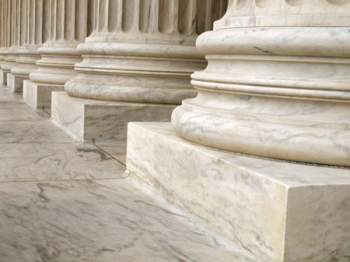
Public Law Explained

What is Public Law?
Public law is a branch of law, which governs the relationship between individuals (for example citizens or companies) and the state (a governing body). Public law is, in essence, the framework relationship that exists between citizens of a state and their functioning governing body. As a result of this bridge, without public law, a governing body would be able to inflict tyranny and unjust practices on its people.
Under this field of law exists the following sub-divisions: administrative law, criminal law and constitutional law. Although these sub-divisions are a part of the broader field of public law, the general premise is at odds with the concept of constitutional law, which states that all laws should be specifically enabled and thereby sub-divisions of the United States Constitution.
As a general thought, private law is the field of law in a society that affects the relationship between citizens or groups without the inclusion of a governing body or the state. In many cases, the distinction between public and private is confounded by the laws that regulate private relations while having been passed by a governing body though legislative enactment. In a variety of cases, these public statutes are known as laws of public order, for private individuals do not maintain the right to break them or circumvent them.
Types of Public Law:
Administrative Law: This branch of public law refers to the body of law which is responsible for regulating bureaucratic procedures and defining the powers of the administrative agencies that operate within the United States Federal Government. This form of public law is enforced by the executive branch of the United States Federal Government. This particular body of law regulates international trade, taxation, police law, environmental law manufacturing and the like.
Statutory Law: This branch of public law regulates the behavior of private citizens through the establishment of rules, rights and benefits. For example, the establishment of a speed limit and the regulations revolving around the obtainment of social security benefits or a driver’s license are instituted, enforced and maintained through statutory law.
Constitutional Law: This branch of public law deals with the relationship between the state and the individual, as well as the relationships between the different branches of the state, such as the judiciary, the legislative and the executive. In the majority of legal systems or developed nations, these relationships are affirmed and specified within a written constitutional document. This document, in essence, becomes the framework for the government; all relationships within public law and the laws of the land in general, are outlined in a nation’s constitution.



















